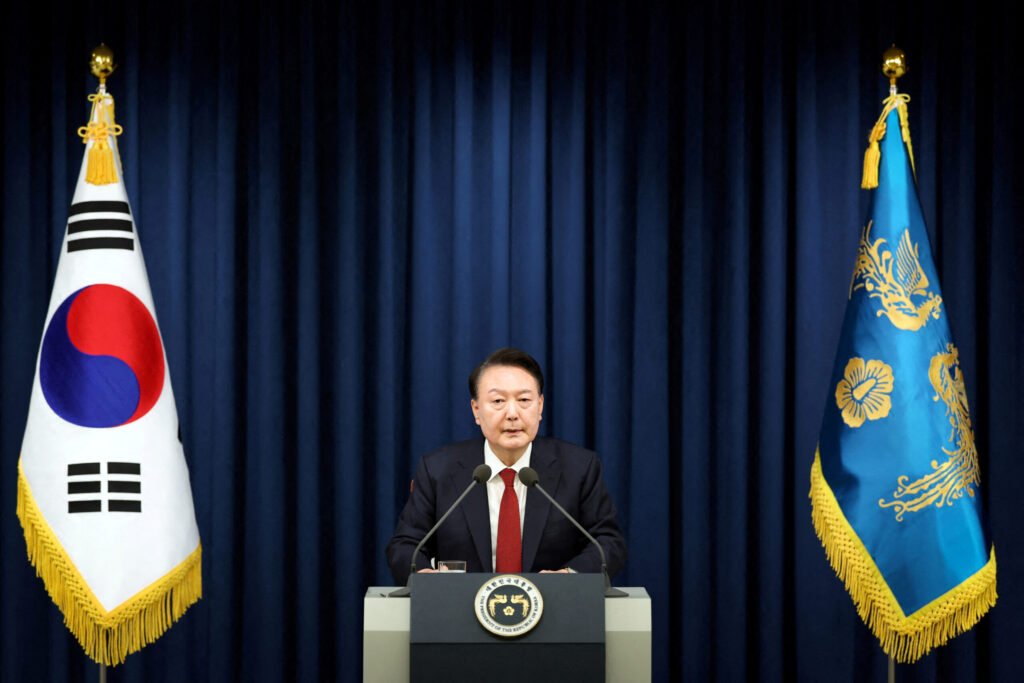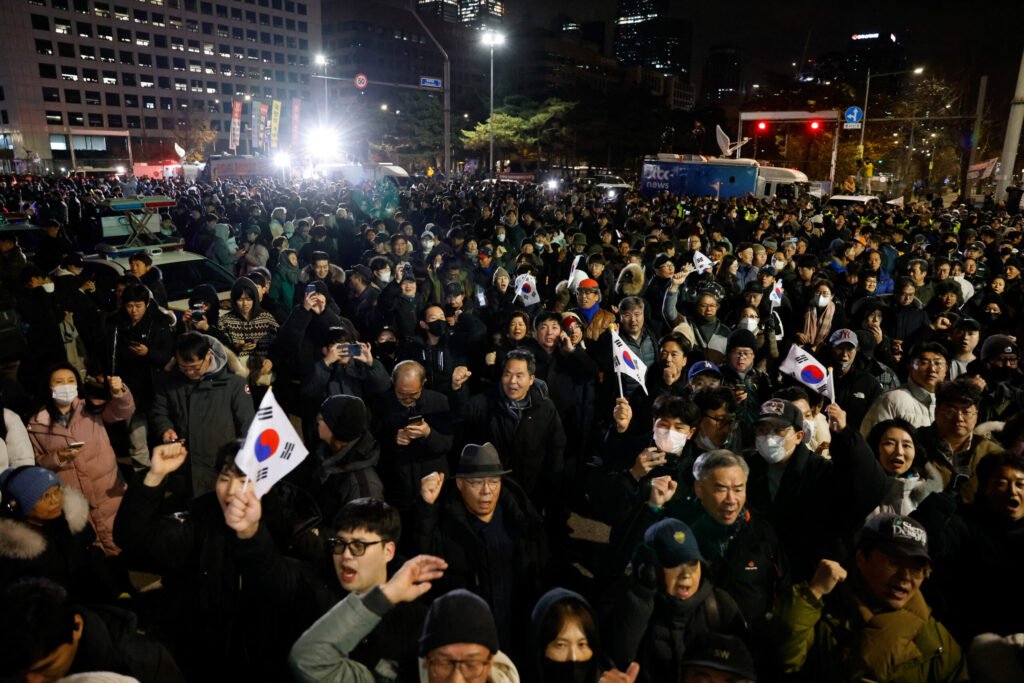Martial Law in South Korea: An Unpopular President’s Desperate Gambit
A sudden late-night declaration of martial law by South Korean President Yoon Suk-yeol has captured domestic and international attention, plunging the nation into a political crisis.
For over two years, the pro-democratic opposition has criticized Yoon’s administration as a “prosecutor dictatorship,” citing his controversial use of prosecutorial powers to target liberal and progressive figures, suppress labor movements, and marginalize independent media. His government’s revival of anti-communist rhetoric reminiscent of authoritarian regimes has deepened these concerns.
In an August 2023 Liberation Day speech, Yoon claimed that “the forces of communist totalitarianism have always disguised themselves as democracy activists, human rights advocates, or progressive activists while engaging in despicable and unethical tactics and false propaganda.” Such statements alarmed critics, who viewed them as signs of democratic backsliding, while others dismissed them as outdated conservative sloganeering.
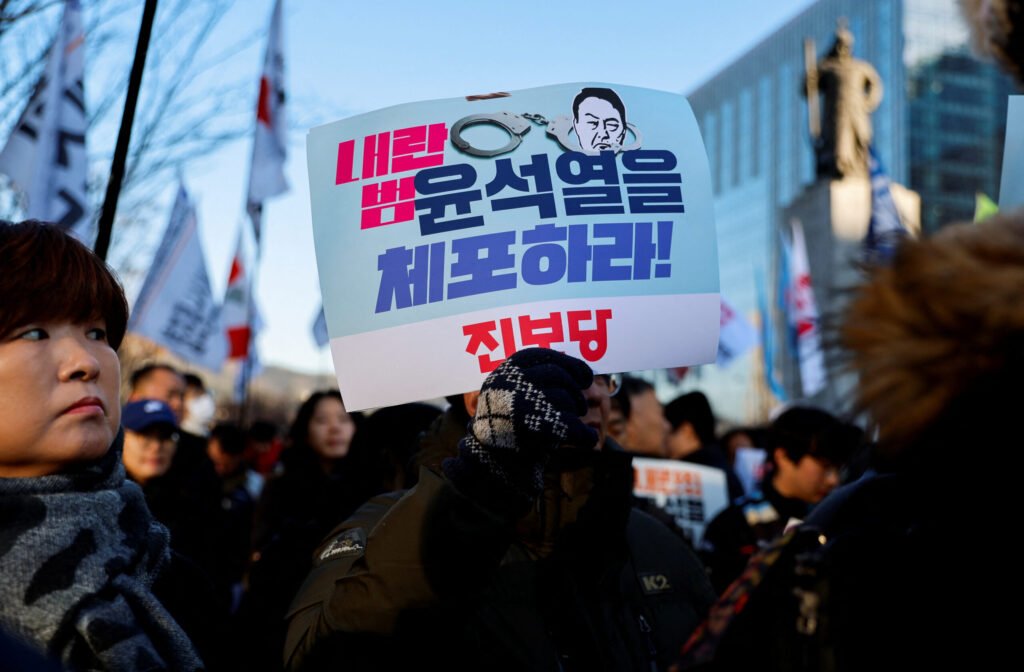
Warnings of a Crisis Fulfilled
In September, Democratic Party lawmaker Kim Min-seok issued a warning that Yoon was preparing for authoritarian measures. Kim pointed to the president’s appointments of close allies and former classmates to key positions in national security, defense, and intelligence agencies. He cautioned that these moves could pave the way for a declaration of martial law under the guise of addressing threats from “pro–North Korean forces.”
While Kim’s predictions were initially dismissed by many as alarmist, events on Tuesday night vindicated his concerns. Even the traditionally conservative Choson Ilbo quickly acknowledged that Kim’s warning had proven accurate. The National Assembly’s rapid annulment of the martial law declaration underscored the widespread perception that Yoon’s move was a desperate bid to cling to power.
A Troubled Administration
Yoon’s presidency has been marred by persistent scandals and accusations of incompetence. His government’s mishandling of the 2022 Itaewon crowd crush, which claimed 159 lives, and its obstruction of an investigation into the death of Marine Private Chae Su-geun during flood response efforts in 2023, have fueled public discontent. Beyond these incidents, Yoon’s use of the prosecution service to intimidate opponents, restrict labor activism, and silence critical media has further tarnished his reputation.
First Lady Kim Keon-hee has also faced scrutiny over allegations of bribery, academic fraud, and stock manipulation. These controversies, coupled with revelations of political meddling involving the president, his wife, and spiritual advisor Myung Tae-kyun, have amplified calls for Yoon’s impeachment. Myung, likened by observers to Choi Soon-sil—the advisor implicated in the impeachment of former president Park Geun-hye—was indicted just hours before Yoon declared martial law.
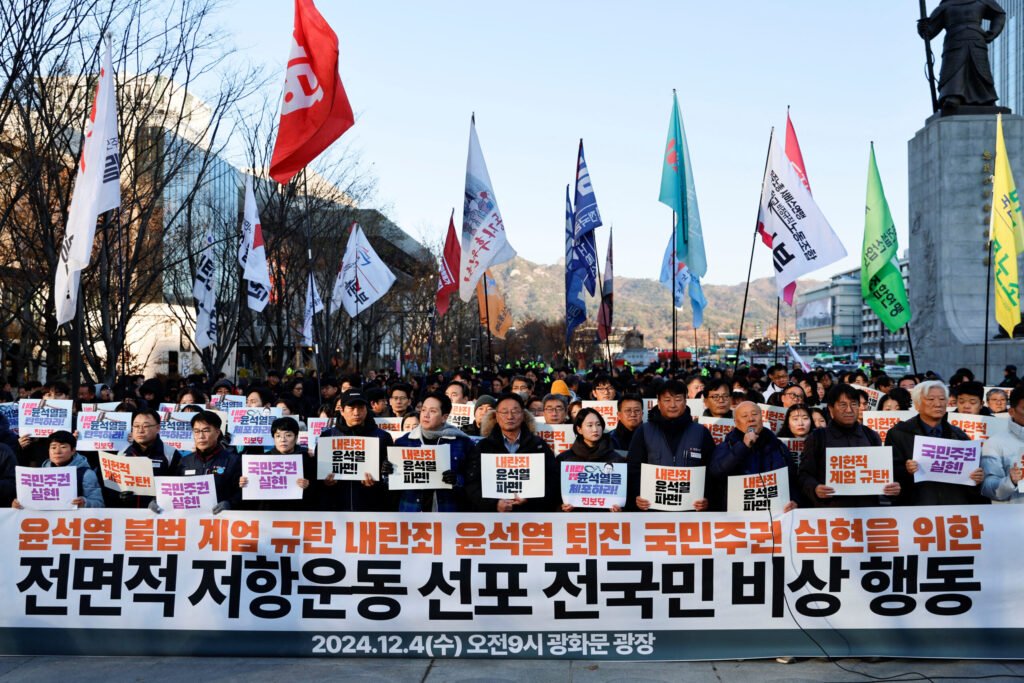
Ironically, Yoon had been the lead prosecutor in Park’s trial, which exposed the deep corruption and authoritarian tendencies of her administration. Yet, Yoon’s recent actions bear striking similarities to the conduct of Park and her father, dictator Park Chung-hee, whose legacy continues to loom over South Korea’s political landscape.
The Spark of Resistance
The timing of Yoon’s declaration suggests he sought to preempt growing resistance to his administration. Recent weeks have seen escalating protests, including a massive candlelight vigil involving tens of thousands of participants demanding his impeachment. These demonstrations were bolstered by statements from university students, professors, civic organizations, and trade unions, as well as support from prominent academics abroad. Notably, Seoul National University, Yoon’s alma mater, joined the chorus of condemnation.
However, Yoon’s decision to declare martial law—a move unprecedented in over four decades—seems to have backfired spectacularly. On Tuesday night, lawmakers defied orders, barricaded themselves in the National Assembly, and overturned the martial law declaration within hours. By 5:00 a.m. Wednesday, Yoon appeared on national television to announce the withdrawal of troops and pledged to reverse his decision.
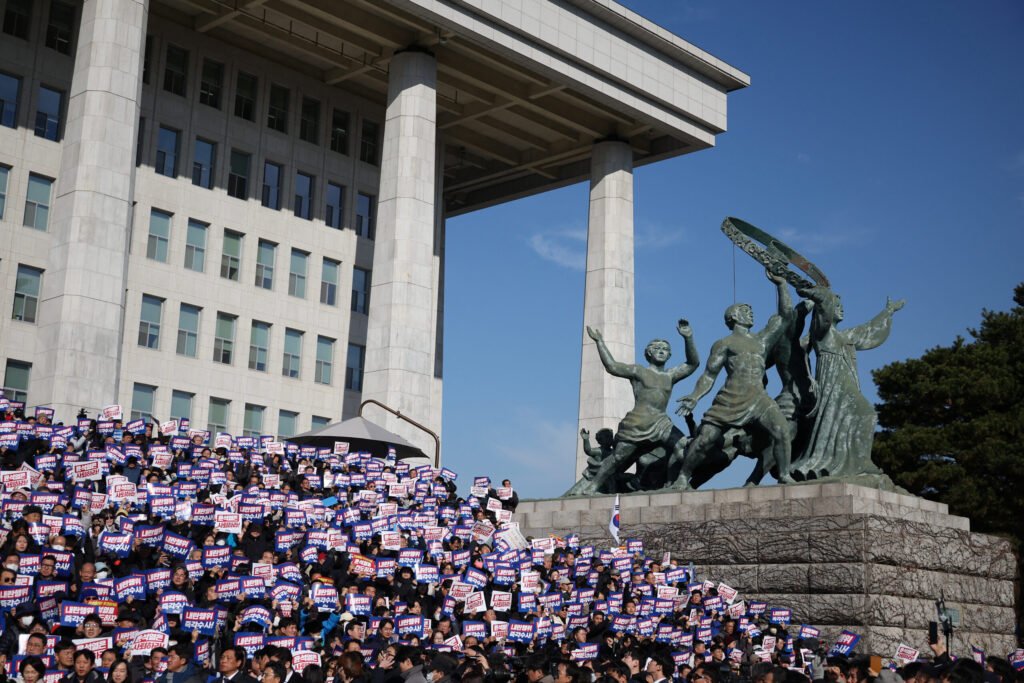
The Road Ahead
As South Korea wakes to a new day, the aftermath of Yoon’s failed power play is likely to galvanize opposition further. The Korean Confederation of Trade Unions has already called for a general strike, while opposition parties are preparing an impeachment motion. Echoes of the 2016–2017 Candlelight Revolution—a movement that led to Park Geun-hye’s ousting—are growing louder.
The crisis underscores a critical juncture for South Korea’s democracy. Whether Yoon’s government survives this tumultuous period remains uncertain, but the events of the past day have already cemented this episode as a stark reminder of the enduring tension between authoritarian impulses and democratic resilience.
